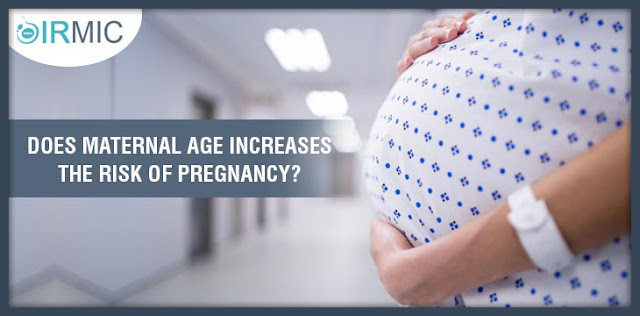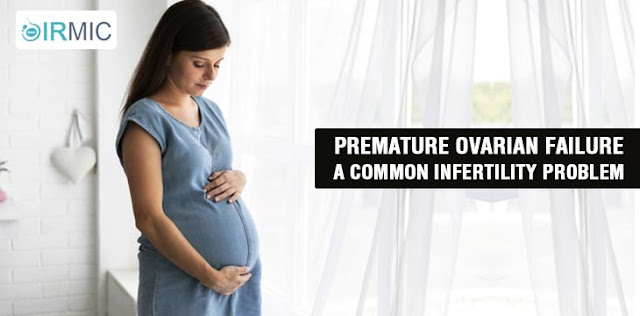Does Maternal Age Increases The Risk Of Pregnancy?
It is considerably well-known that rising maternal age enhances the
risks in pregnancy. Most of these risks are connected with the older age
of the egg and combine an increased risk of infertility, miscarriages
and chromosomal abnormalities in the fetus.
Some studies suggest that at more extreme ages of the mother, there is a heightened risk of adverse pregnancy consequences possibly due to the cardiovascular system and underlying health. These risks cover problems such as preeclampsia, diabetes and fetal growth limitation.
We acknowledge that men generate new sperm each day, and hence sperm is not subjected to the same degeneration that the eggs are, since the eggs are already from birth. Though, we know that sperm parameters change with age, with nurtured structural defects and lower motility but eggs are more affected.
Trouble Getting Pregnant: Each woman is born with a fixed set of eggs and she releases an egg each time she ovulates, about 14 days before the commencement of the period. As she gets older, her egg count goes down and the eggs which she has can’t be quickly fertilized by a man’s sperm. This makes it harder for a woman to get pregnant. If you’re older than 35 and have been trying for 6 months to get pregnant, you need to consult your health care provider.
Pre-existing diabetes exactly states that you have diabetes before you get pregnant. In such situations of preexisting diabetes where a woman has too much blood sugar or glucose in the blood because of the immense blood sugar level, there are chances that the woman might damage organs in the body, including blood vessels, nerves, eyes, and kidneys.
Both gestational diabetes and hypertension also contribute towards pregnancy complications. Gestational diabetes is a kind of diabetes that some women get during pregnancy and hypertension or high blood pressure is when the force of blood which strikes against the walls of the blood vessels is too high.
Preeclampsia: This situation can occur following the 20th week of pregnancy or right after pregnancy. This is a condition when a pregnant woman has high blood pressure and indications that some of her organs like her kidneys and liver, may not be operating properly. The symptoms of preeclampsia include having protein in the urine, fluctuations in vision and severe headaches. If you’re older than 40, the risk is higher for preeclampsia than for younger women.
Content Source : http://drrksharmaivf.in/blog/does-maternal-age-increases-the-risk-of-pregnancy/
Some studies suggest that at more extreme ages of the mother, there is a heightened risk of adverse pregnancy consequences possibly due to the cardiovascular system and underlying health. These risks cover problems such as preeclampsia, diabetes and fetal growth limitation.
We acknowledge that men generate new sperm each day, and hence sperm is not subjected to the same degeneration that the eggs are, since the eggs are already from birth. Though, we know that sperm parameters change with age, with nurtured structural defects and lower motility but eggs are more affected.
Pregnancy Complications Before And During Pregnancy After 35
Being pregnant after 35 years makes pregnancy more complicated which include premature birth, birth defects and getting pregnant with multiples which is also a probability. Once a woman crosses the age of 35 she may develop several health conditions that can cause complications before and during pregnancy. Let us discuss some of these complications.Trouble Getting Pregnant: Each woman is born with a fixed set of eggs and she releases an egg each time she ovulates, about 14 days before the commencement of the period. As she gets older, her egg count goes down and the eggs which she has can’t be quickly fertilized by a man’s sperm. This makes it harder for a woman to get pregnant. If you’re older than 35 and have been trying for 6 months to get pregnant, you need to consult your health care provider.
Pre-existing diabetes exactly states that you have diabetes before you get pregnant. In such situations of preexisting diabetes where a woman has too much blood sugar or glucose in the blood because of the immense blood sugar level, there are chances that the woman might damage organs in the body, including blood vessels, nerves, eyes, and kidneys.
Both gestational diabetes and hypertension also contribute towards pregnancy complications. Gestational diabetes is a kind of diabetes that some women get during pregnancy and hypertension or high blood pressure is when the force of blood which strikes against the walls of the blood vessels is too high.
Preeclampsia: This situation can occur following the 20th week of pregnancy or right after pregnancy. This is a condition when a pregnant woman has high blood pressure and indications that some of her organs like her kidneys and liver, may not be operating properly. The symptoms of preeclampsia include having protein in the urine, fluctuations in vision and severe headaches. If you’re older than 40, the risk is higher for preeclampsia than for younger women.
Risks Of Chromosome Abnormalities
The risk of chromosomal deformity progresses with maternal age. The chance of producing a child affected by Down Syndrome increases from about 1 in 1,250 for a woman who conceives at age 25, to about 1 in 100 for a woman who conceives at age 40. Many statistics only report live births and do not take into account pregnancies with chromosomal abnormalities that were stopped or ended due to natural pregnancy loss.Reference
Do you face a problem becoming pregnant or do you have fertility difficulties or do you just need to confirm that it’s safe for you to become pregnant because of your age? Get the best consultation from Dr. RK Sharma the best IVF Specialist doctor in Delhi.Content Source : http://drrksharmaivf.in/blog/does-maternal-age-increases-the-risk-of-pregnancy/




Comments
Post a Comment